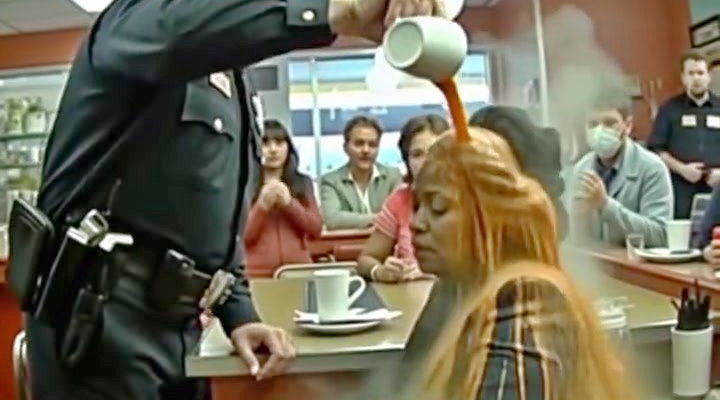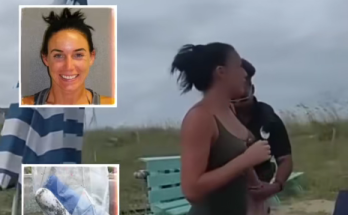As Clara exited the diner, whispers and murmurs rippled through the crowd, a mix of disbelief and outrage. Some patrons hurried after her, offering help and expressing their apologies on behalf of their town. Yet, Clara, with her innate grace, assured them she was fine, her focus seemingly elsewhere.
Detective Harris, on the other hand, stood rooted to the spot, a flurry of emotions playing across his face. He tried to maintain his façade of indifference, but internally, seeds of doubt began to take root. His actions, driven by a moment of irrational prejudice, now seemed indefensible even to himself.
As the hours passed and Harris continued with his day, the incident gnawed at his conscience. The image of Clara’s dignified retreat haunted him, refusing to be silenced. It was only when he returned to the police station that he began to understand the full extent of what he had done.
His commanding officer, Captain Elaine Richards, a woman known for her unwavering integrity, called him into her office. Her expression was a mix of disappointment and anger as she revealed Clara’s identity to him. “John,” she began, her voice heavy with disapproval, “do you have any idea who that woman is?”
Harris shook his head, the truth about to shake the foundations of his misplaced judgement. “Clara Williams,” Captain Richards continued, “is not just a teacher. She’s the widow of Senator Robert Williams, who dedicated his life to fighting for civil rights in this state. She’s a pillar of this community, respected and loved by many.”
The revelation struck Harris like a physical blow. His knees felt weak, and he sank into the nearest chair, the reality of his actions cascading over him like a relentless wave. He had not only wronged an innocent woman but had also disrespected the memory of a man who had fought tirelessly for justice and equality.
The news of the diner incident spread quickly, reaching the ears of community leaders and activists. The town was abuzz with discussions about what had happened, and calls for justice grew louder. Protests were organized, demanding accountability from the police department and, more importantly, from Harris himself.
For Harris, the days that followed were a period of deep introspection. He had to confront the biases he had long ignored, and it was a painful journey of self-awareness. He reached out to Clara to apologize, not just as a formality but with genuine remorse. He knew that words alone could not undo the harm he had caused, but he hoped it would be a start.
Clara, gracious as ever, met with Harris. Her forgiveness was not immediate; it was something Harris had to earn. She challenged him to reflect on his actions, to understand the roots of his prejudice, and to take steps toward becoming a better person.
In the end, Harris’s journey was one of redemption. He became an advocate for racial sensitivity training within the police force, using his experience as a lesson for others. Clara’s quiet dignity and strength had not only changed him but had also sparked important conversations in the town about race, justice, and humanity.
The incident, while painful, became a catalyst for change, proving that even in the darkest moments, there is potential for growth and understanding, provided one is willing to learn and listen.




